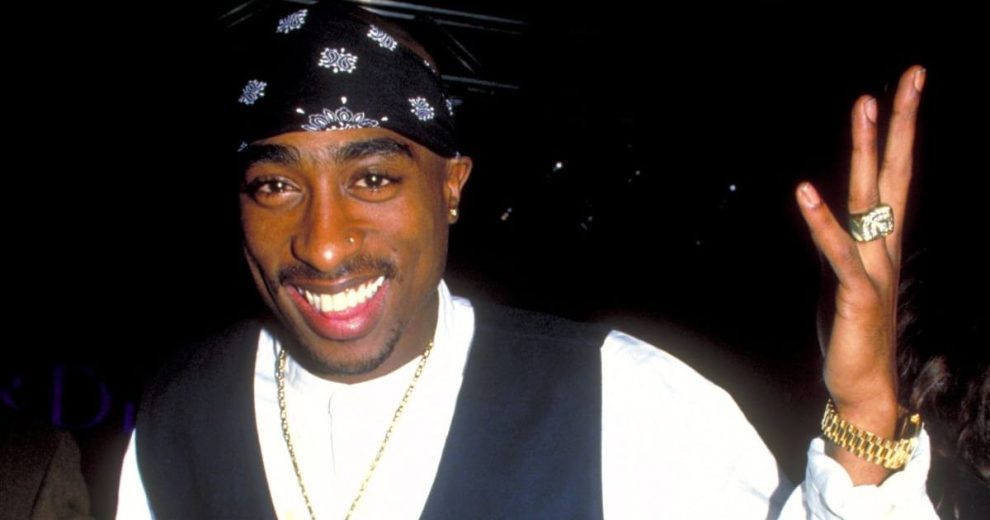Author: Federico Dukofeli
LAS VEGAS – As the anniversary of Tupac Amaru Shakur’s death on September 13th approaches, fans around the world reflect on the profound influence he had on hip-hop, activism, and culture. Tupac’s legacy remains vibrant, resonating not only with the generation that grew up with his music but also with new audiences who continue to discover the power of his words and life. Whether you’re a lifelong fan or just learning about this legendary figure, here are ten essential things about Tupac that reveal why he’s still considered a cultural icon.
1. A Poet with a Cause
Tupac’s artistry extended far beyond his music. His work often reflected the struggles of the African American community, particularly around themes of poverty, injustice, and systemic racism. Before his music career, he wrote poetry and was heavily influenced by Black Panther ideology, which he inherited from his mother, Afeni Shakur, who was an active member of the party. His poems, later published in The Rose That Grew from Concrete, revealed his deep sensitivity and ability to articulate the pain and beauty of life in a raw and honest way.
2. The Meaning of ‘Makaveli’
Tupac’s final album, The Don Killuminati: The 7 Day Theory, was released under the pseudonym ‘Makaveli,’ a nod to the Italian philosopher Niccolò Machiavelli. Machiavelli wrote about deceit and power, themes that Tupac explored in his music. Some believe that this alias reflects Tupac’s understanding of survival in a brutal world, where truth is often manipulated by those in power.
3. His Connection to Activism
Tupac’s revolutionary spirit was in his DNA. Born to Afeni Shakur and Billy Garland, both members of the Black Panther Party, Tupac was raised in a politically charged environment. His upbringing directly influenced his music and public persona, as he often spoke out against police brutality, mass incarceration, and the plight of the inner city. Tupac’s activism wasn’t limited to his lyrics—he also advocated for unity among black communities, seeing his art as a tool for awareness and empowerment.
4. A Versatile Actor
Many know Tupac for his music, but he was also an accomplished actor. He starred in several major films in the 1990s, such as Juice (1992), where his portrayal of Bishop showcased his range and intensity as an actor. He went on to star in Poetic Justice alongside Janet Jackson, Above the Rim, and Gridlock’d, among other films. His performances were raw and reflective of the same intensity he brought to his music.
5. A Survivor of Multiple Shootings
Before the fatal Las Vegas shooting in 1996, Tupac had already survived a brutal attack in 1994. He was shot five times in a New York recording studio but incredibly survived the ordeal. This shooting heightened tensions in the hip-hop world, fueling the East Coast-West Coast rivalry that defined much of the 1990s rap scene.
6. The East Coast-West Coast Feud
Tupac’s music and life were entangled in one of the most infamous conflicts in hip-hop history—the East Coast-West Coast feud. His rivalry with the Notorious B.I.G. and Sean “Puffy” Combs was one of the driving forces behind the beef. Although the origins of the feud are complex, it culminated in tragic losses for both sides, including Tupac’s murder. His death left a void in the rap world and raised questions that remain unanswered to this day.
7. Still Unsolved: The Mystery of His Murder
Despite years of investigations, Tupac’s murder remains unsolved. On September 7, 1996, Tupac was shot in a drive-by on Flamingo Road in Las Vegas, Nevada. He succumbed to his injuries on September 13th, leaving fans heartbroken and the case open-ended. Numerous conspiracy theories have emerged over the years, with some believing that Tupac might still be alive or that law enforcement was involved in a cover-up. The truth remains elusive, adding to his legendary status. However, while swirling rumors have linked multimillionaire rapper and producer, Combs, to the murder, police have not charged him with any crime in relation to Tupac’s death.
8. A Prolific Legacy: Over 75 Million Records Sold
Tupac’s influence transcends his short life. With over 75 million records sold worldwide, Tupac’s music continues to inspire and connect with listeners across generations. His albums, such as Me Against the World and All Eyez on Me, are still considered some of the best in the genre, and his posthumous releases have only added to his mystique.
9. The Power of His Posthumous Work
Since his death, several posthumous albums have been released, cementing Tupac’s place in music history. Albums like Until the End of Time, Better Dayz, and Loyal to the Game reflect Tupac’s enduring relevance and ability to connect with listeners. Each release brings new reflections on his life, love, and the struggles of the underprivileged, making it clear that his work was ahead of its time.
10. The Cultural Impact of His Lyrics
Tupac’s words were more than just rhymes—they were social commentary. Tracks like “Brenda’s Got a Baby,” “Keep Ya Head Up,” and “Changes” address societal issues such as teen pregnancy, misogyny, and racial inequality. His fearless confrontation of difficult topics made him both loved and controversial, but there’s no denying that he had a finger on the pulse of social justice long before it became a mainstream conversation. His lyrics continue to resonate with those fighting for equality and change.
A Legacy That Lives On
Tupac Shakur wasn’t just an artist—he was a force of nature whose impact on music, culture, and activism is still felt today. As we approach the anniversary of his death, it’s clear that his legacy will continue to inspire future generations. Tupac’s life may have been cut short, but his words, music, and message will live on, ensuring that this hero remains immortal in the hearts of those who believe in change and justice.











Add Comment